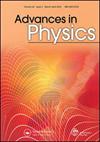Coherent and transient states studied with extreme ultraviolet and X-ray free electron lasers: present and future prospects
IF 13.8
1区 物理与天体物理
Q1 PHYSICS, CONDENSED MATTER
引用次数: 15
Abstract
The most recent light sources, extreme ultraviolet (EUV) and X-ray free electron lasers (FELs), have extended tabletop laser experiments to shorter wavelengths, adding element and chemical state specificity by exciting and probing electronic transitions from core levels. Through their unique properties, combining femtosecond X-ray pulses with coherence and enormous peak brightness, the FELs have enabled studies of a broad class of dynamic phenomena in matter that crosses many scientific disciplines and have led to major breakthroughs in the last few years. In this article, we review how the advances in the performance of the FELs, with respect to coherence, polarization and multi-color pulse production, have pushed the development of original experimental strategies to study non-equilibrium behavior of matter at the femtosecond–nanometer time–length scales. In this review, the emphasis is placed on the contribution of the EUV and soft X-ray FELs on three important subjects: (i) the new regime of X-ray matter interactions with ultrashort very intense X-ray pulses, (ii) the new potential of coherent imaging and scattering for answering questions about nano dynamics in complex materials and (iii) the unique possibility to stimulate and probe nonlinear phenomena that are at the heart of conversion of light into other forms of energy, relevant to photovoltaics, femtosecond magnetism and phase transitions in correlated materials.用极紫外和x射线自由电子激光器研究相干态和瞬态:现在和未来展望
最近的光源,极紫外(EUV)和x射线自由电子激光器(FELs),已经将桌面激光实验扩展到更短的波长,通过激发和探测核心能级的电子跃迁来增加元素和化学状态的特异性。通过其独特的特性,将飞秒x射线脉冲与相干性和巨大的峰值亮度相结合,fel能够研究跨越许多科学学科的物质中广泛的动态现象,并在过去几年中取得重大突破。在本文中,我们回顾了在相干性、偏振性和多色脉冲产生方面,feels性能的进步如何推动了飞秒-纳米时间尺度上研究物质非平衡行为的原始实验策略的发展。在本文中,重点介绍了EUV和软x射线场在三个重要方面的贡献:(1) x射线物质与超短极强x射线脉冲相互作用的新体制;(2)相干成像和散射的新潜力,用于回答复杂材料中纳米动力学的问题;(3)刺激和探测非线性现象的独特可能性,这些现象是光转化为其他形式能量的核心,与光伏、飞秒磁性和相关材料的相变有关。
本文章由计算机程序翻译,如有差异,请以英文原文为准。
求助全文
约1分钟内获得全文
求助全文
来源期刊

Advances in Physics
物理-物理:凝聚态物理
CiteScore
67.60
自引率
0.00%
发文量
1
期刊介绍:
Advances in Physics publishes authoritative critical reviews by experts on topics of interest and importance to condensed matter physicists. It is intended for motivated readers with a basic knowledge of the journal’s field and aims to draw out the salient points of a reviewed subject from the perspective of the author. The journal''s scope includes condensed matter physics and statistical mechanics: broadly defined to include the overlap with quantum information, cold atoms, soft matter physics and biophysics. Readership: Physicists, materials scientists and physical chemists in universities, industry and research institutes.
 求助内容:
求助内容: 应助结果提醒方式:
应助结果提醒方式:


